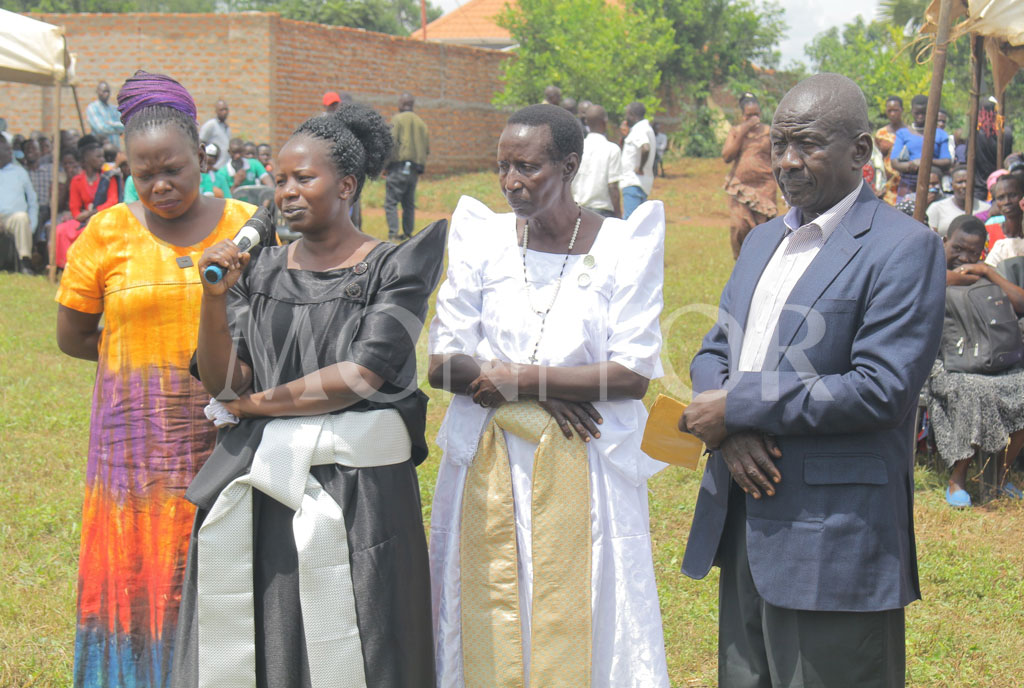Prime
Why widows need to be protected from the vagaries of bereavement

What you need to know:
- The anger, guilt, shock, and fear, they experience cannot be wished away. It takes time to heal.Include widows in social development aspects and protect them from the vagaries of bereavement.
Victoria lost her husband in a motor accident 10 years ago. That loss was devastating in impact second only to the pain she felt when she abruptly lost her first born-son to a strange disease she thinks was witchcraft.
For the last 10 years, she has had to be strong and take care of the five remaining children, while balancing the roles of being mother and father.
Yesterday, June 23, was International Widows’ Day. It is observed for women like Victoria, now called widows. A widow is a woman whose husband has died. More women than men are likely to be widowed because of these twin reasons: a). Women usually marry older men and b). Women live longer than men.
This is the day to assess the issues affecting widows and advance their rights. In Uganda, widow figures are scanty to come by, but this is one of the most vulnerable groups. Their vulnerability, even throughout history is apparent that In the Bible, the word “widow(s)” is mentioned 81 times (55 in the Old Testament and 25 in the New Testament).
God takes special interest and care of widows and orphans that He will come after anyone with both pistols, who oppress them; “Do not take advantage of the widow or the fatherless. If you do and they cry out to me, I will certainly hear their cry. My anger will be aroused, and I will kill you with the sword; your wives will become widows and your children fatherless.” (Exodus 22:22-24)
In the African traditional context, when a husband died, a widow was inherited by a male among the late husband’s relatives firstly to protect them and secondly to provide for them. Currently, that no longer applies to most societies because of the emergence of different sociological, legal, and economic factors which have resulted in different existential challenges for widows. Here are some:
Property inheritance
Whereas the 1995 Constitution of Uganda in Article 31 (2) allows widows (and widowers) the right to inherit their spouses’ property, this is always the case considering that some widows do not know this law and therefore, are taken advantage of by crazy, greedy relatives. The processes involved in acquiring administrative rights to a deceased’s properties can also be complicated for widows to follow through especially those widows who are uneducated.
Harassment from relatives
Apart from attempting to deny them family property, some widows are harassed and mistreated by relatives upon the death of their spouses. Their children may be taken away from them or they may be regarded as an excess burden to the family. Caroline, a widow says, “When Fred died, his relatives my son and I out of the house. They were verbally abusive, discriminatory and disrespectful. What made it worse was that Fred left no will. One of their elders, settled the matter by proposing that I get 20 percent of the property. They got the biggest share and they bucked off. But I leave in constant fear of reprisals.”
Emotional hardships
Some widows can adjust quickly to widowhood but others can take longer and end up becoming harbingers of depression, especially in the first two years of the death of a spouse. The anger, guilt, shock, and fear, they experience cannot be wished away. It takes time to heal the wound. Some may have difficulty eating, sleeping, concentrating, and making decisions.
Such people can get bereavement support or grief counselling from family, friends, and trained care workers. The effects can also be minimised if the widow can take personal care of themselves by eating well, exercising, volunteering somewhere, enjoying their hobbies, reading books, taking a class, keeping company with others, and praying.
Poverty
Men are the principal breadwinners in most families and in the event that a husband passes on, his family can be plunged into poverty suddenly. One in 10 widows worldwide lives in extreme poverty, according to a UN Women report titled, Explainer: What you should know about widowhood published inJune 2021. “We were four wives married to Mustapha and I was the youngest, stay-at-home-mum of three daughters. I had no idea about his finances and businesses. The other wives took all the property, calling and left me with nothing. It is a struggle to fend for my children daily. It hurts,” says Rehema.
Widows like Rehema can be empowered to financially support themselves and their children and live with dignity.
Parenting challenges
Parenting children singlehandedly is a nightmare. Both mother and father are needed for the healthy growth of a child. In the absence of the father, the widow now has to take on playing two roles that may be too much to handle, especially if the children are still below 18 years.
“My sons are teens now and while I am a psychologist and I know much about their state of mind at this stage, I cannot replicate the father-son relationship that Robert would have had with them.”
A widow should surround herself with family and friends who love her and her children and who will bring in the emotional, and financial resources the children need to grow balanced.
Loneliness
Some men do not like to marry widows with children because they consider them “encumbered”. Additionally, some widows suffer from stigma if their partners died of strange diseases they may be considered infected too so they are shunned. Some societies in Asia and the Arab world still consider widows to have “bad luck.” Others consider widows as difficult to relate with because of the emotional baggage:
Stephen, a single guy, explains this one: “You may wonder if her reactions are due to her personality, age, or grief. It can be confusing I would never tread there.” These mindsets cause them to stay lonely. As we recognise widows, let us make every effort to include them in all social development aspects and protect them from the vagaries of bereavement.




